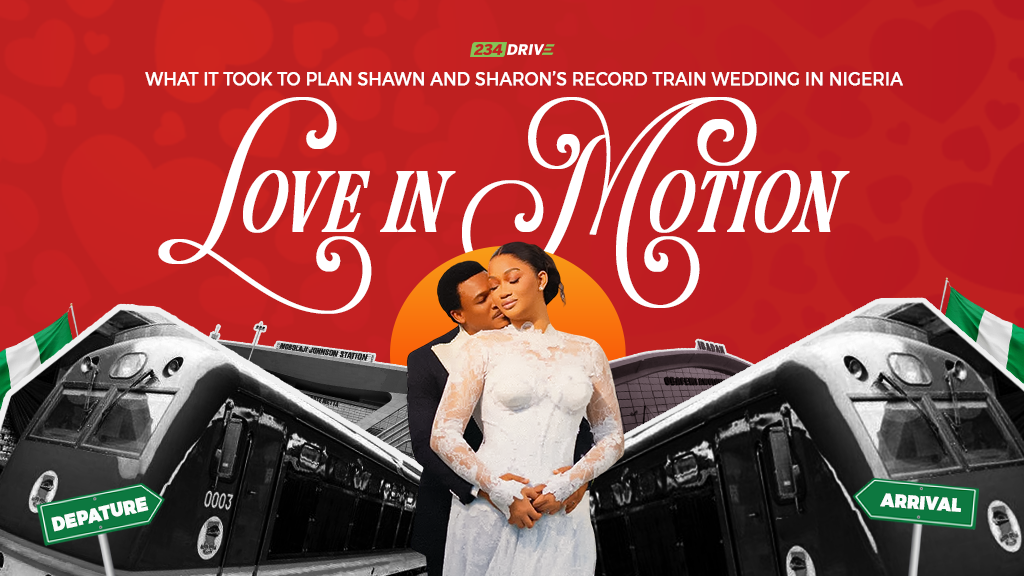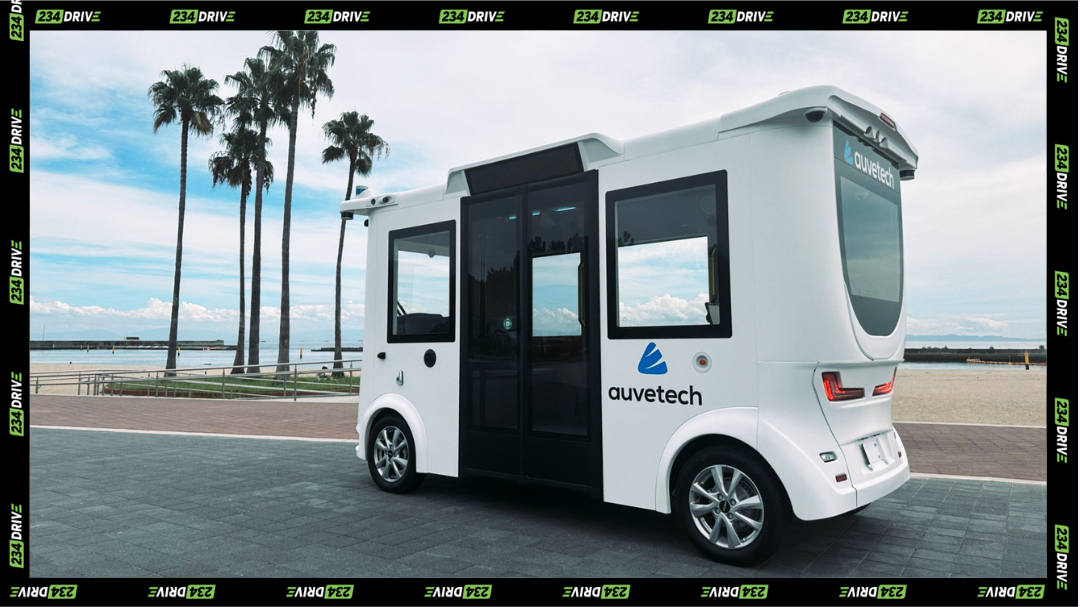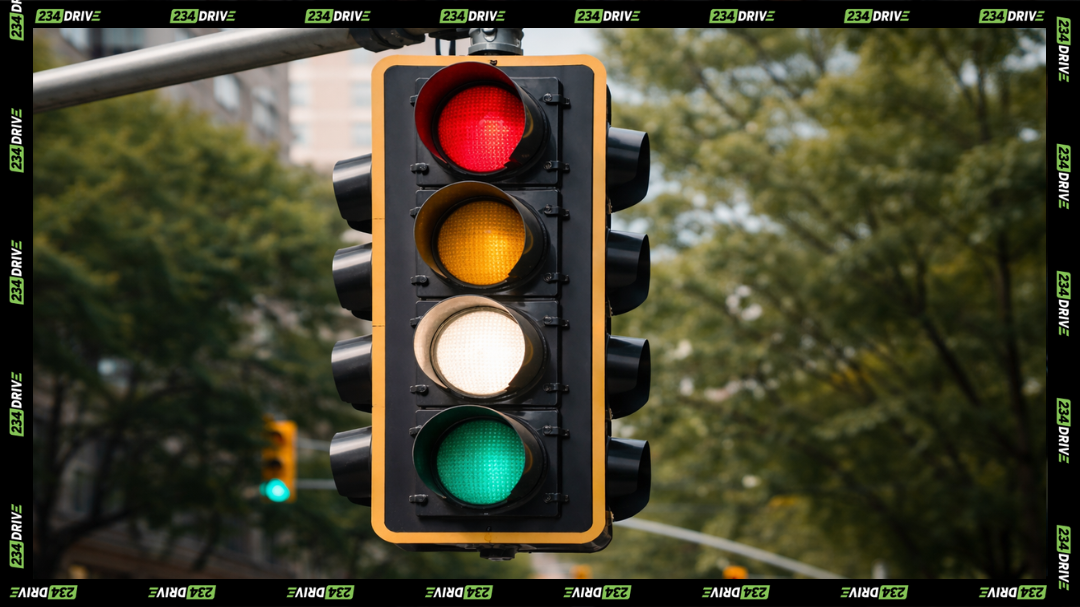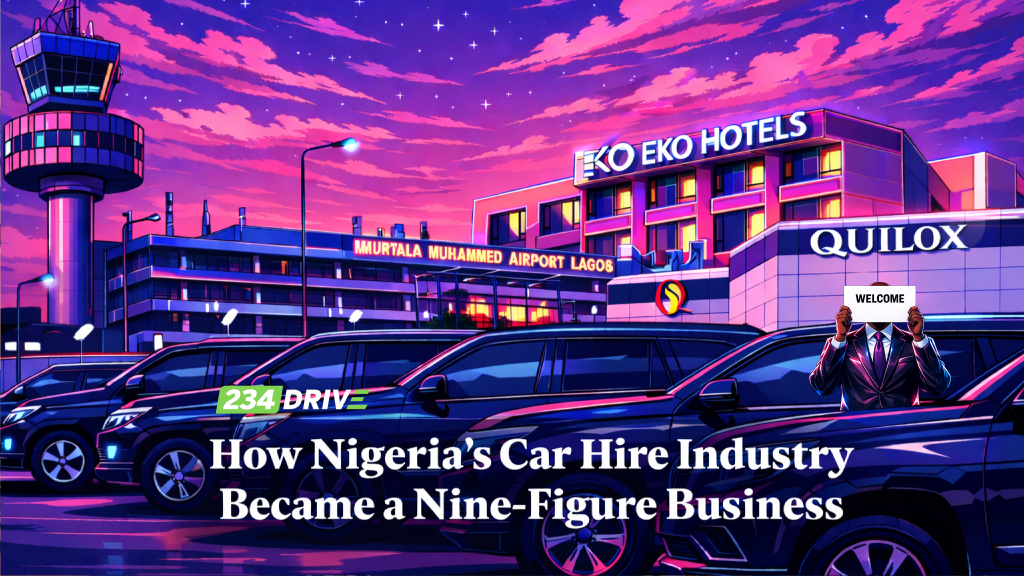On 31st May, 2025, actor Shawn Faqua and Dr. Sharon Ifunanya boarded a train from Lagos to Ibadan, on what would be—unbeknownst to Sharon—a ride into the rest of their lives together. Shawn, together with Sharon’s event planning company, Shamol Experience, had orchestrated an intimate proposal setup in Ibadan.
But on the way there, all Sharon knew was that she was finally getting to experience her first train ride in Nigeria, a dream she had breezily expressed to Shawn in the early days of their relationship. They held hands aboard the humming locomotive, watching the bustle of Lagos dissolve into the quiet of Ibadan, the rust-brown-roofed city Sharon was eager to explore with the love of her life.
Shortly after their arrival, Shawn whisked her away to a private location where family, friends and talents like spoken word artist IB Quake and love crooner Savy Henry were already waiting. Surrounded by the people who knew them best, Shawn went on bended knee and proposed. And Sharon said yes.
Five months later, they boarded the same route — not as mere passengers, but as bride and groom.

The idea was simple but poetic: to return to where the promise of forever began. But executing it was anything but simple.
A Moving Ceremony
The Lagos-Ibadan railway line was the first ever in Nigeria, constructed between 1898 and 1901 to serve the colonial government’s interests. By 1964, other rail lines had been added and over 11 million passengers and 2,900 tonnes of freight had been transported across the country. However, as with many things in Nigeria, a poor maintenance culture led to the decay of the train system, and by the 2000s, the idea of travelling inter-city by train seemed foreign.

Until 2019. This time, the Lagos-Ibadan railway roared back to life under the technical purview of the China Civil Engineering Construction Corporation (CCECC). The revived Abuja-Kaduna line had come first in 2016, but it wasn’t until December 2019 that the Lagos-Ibadan railway recorded its first official ride from a make-shift station in Iju. In June 2021, then President Muhammadu Buhari commissioned the 157km Lagos-Ibadan Standard Gauge Railway (SGR), a truly modern rail system that showed immense promise for the nation’s automotive sector. Yet, it’s safe to bet that no one—not the presidency, nor the Nigeria Railway Corporation (NRC)—would ever expect that just 4 years later, one of these trains would serve as a wedding hall for two unconventional lovers.
There is indeed nothing like a Nigerian wedding, but even more so, nothing like Sharon and Shawn’s wedding, held in transit across three cities—Lagos, Abeokuta and Ibadan. Theirs, dubbed #ogeifunanya, was a thrilling rebellion against the typical template of a Nigerian wedding, one tailor-made to their love story. While their traditional wedding, held on 16th October, was a tad less radical, it still took a unique twist to executing the modern Nigerian wedding party by paying homage to retro Igbo culture.
At 1:40 PM on 18th October, the train pulled out of the Mobolaji Johnson Train Station in Yaba, Lagos with a new kind of passenger list: an officiating minister, a bridal train, family, friends, a small photography and film crew, and NRC officials who’d spent weeks mapping out logistics. The excitement in the air was palpable, highlighted by a viral video in which the couple exclaimed, ‘Hi guys, we’re getting married on a train! Breaking records!’
In a truly cinematic moment ideated by Ojo Emmanuel (AKA Rocky Emmy), the bridesmaids clad in pastel tones and dapper groomsmen—and lady—ran along with the couple to the coach. In reality, Rocky himself had almost missed the wedding and had to hurriedly catch the train, a peculiarity that could only be possible with a ceremony that waited for no one. The popular photographer and longtime friend of the groom shared with us, ‘There was no African time with this wedding. The train was leaving at this time, and my assistant and I had to catch it.’
Ordinarily, the NRC offers two departures daily from the Yaba Station—8 AM and 4PM—but the wedding called for a special additional slot. One of the coaches had been transformed into an ornate wedding car — sheer white cascades on the train walls, ivory blossoms lining seats and a long lone table, and a rather narrow aisle now serving as a runway for a bride ethereally clad in white. A second coach seated more while a third served as a private room for the couple. The ceremony was live-streamed and played on the train’s TV screens so those in the adjoining coach could follow along.

For attendees, it was an entirely new way of experiencing a love story, one that involved lots of laughter and tears, the hum of motion, and a couple’s promise to stay on track, no matter where the journey bends. They got to witness the beauty of the ceremony and, with just a look through the windows, the beauty of Nigeria’s shifting natural landscape, too, over the 2-and-a-half-hour train ride.
For the photography and film crew, covering the wedding required a certain level of skill, one honed by years of experience. ‘It wasn’t possible to move around in the train once the ceremony started, so I had to make sure I had the right lenses to capture the event,’ Rocky revealed. He banked on telephoto lenses to sustain intimacy while shooting from a distance: a 70-200 mm lens and a 200mm lens mounted on a crop-sensor body, effectively giving him a 320mm reach. ‘I like candid shots, and with that setup, I could do my thing without interrupting the moment,’ he remarked.
A Celebration by the Water
When the train finally rolled into Obafemi Awolowo Train Station in Ibadan just before 4PM, guests disembarked to continue the celebration at IITA, the International Institute of Tropical Agriculture. The train quickly returned to Lagos, on schedule for its 4PM departure. Guests boarded a chartered bus to the reception venue, while the couple stole away in a private car for the 20-minute ride. By the time they all arrived at IITA, some of the guests were already present, having opted to travel to Ibadan by road.

The wedding party, comprising over a hundred people, soon unwound in the cool of evening breeze as the serene lakeside provided the perfect backdrop for the reception feast. This part of the wedding was more in tune with Nigerian wedding conventions, featuring lots of food, music and ‘Dance! Dance!! Dance!!!’ For Rocky, who’s covered over a hundred weddings in his career, the reception is almost an unavoidable element of the Nigerian wedding.

While a train wedding might sound like a budget-friendly elopement idea, the real cost lives in the details—booking the train, transporting vendors from Lagos, accommodation for overnight stays, and the logistics of moving over a hundred guests across states. It’s an adventure, but one that requires planning and money. This is worth noting for couples who may be eyeing having their own version of a Nigerian train wedding.
The following morning, the entire wedding party, save for the newlyweds, boarded the same 8AM train back to Lagos, having witnessed history in the making.
Riding Against the Rails
While Sharon and Shawn’s train wedding was unprecedented, it was not the first time that Nigerians had taken conjugal bliss to new heights—literally. Back in April 2001, veteran actress Omotola Jalade-Ekeinde married her pilot husband, Captain Matthew Ekeinde, in a one-of-a-kind ceremony aboard a chartered Skyline Dash 7 aircraft. The kicker? Captain Ekeinde was also flying the plane!
Mid-flight, the renowned pilot handed over the control yoke to his co-pilot just long enough to profess his undying love and tie the knot with his bride, in the presence of about 50 guests. Afterwards, he landed the plane safely in Benin, a not-too-long flight from Lagos.
The exclusive guestlist—necessitated by the plane’s limited capacity—comprised the couple’s family and close friends as well as celebrities like Olu Jacobs, Dele Momodu and Julius Agwu. The seats were reportedly highly coveted by many celebrities who also wanted to be aboard the history-making flight.
Upon returning to Lagos, the newly wedded couple made their way to a private residence in Iyana Ipaja for their traditional wedding in more style—cruising in a limousine from Today’s Cars. Though they had legally wed five years earlier, this airborne ceremony gave their union a symbolic lift that remains one of Nigeria’s most memorable weddings.

Flashforward to June 2024 when the Murtala Muhammed Airport (MMA2) in Lagos hosted Nigeria’s first airport wedding, in a bid to promote the terminal and the local travel industry. And now, the NRC has ridden on the publicity wave of Sharon and Shawn’s wedding for a PR facelift, proudly taking to their official X (fka Twitter) account to share:
‘From lovebirds to locomotives, we’re keeping things on track 👩❤️💋👨 🛤️❤️. History made, the first-ever wedding on a moving train in Nigeria. A proof that the journey can be just as beautiful as the destination. At NRC every ride tells a story.’
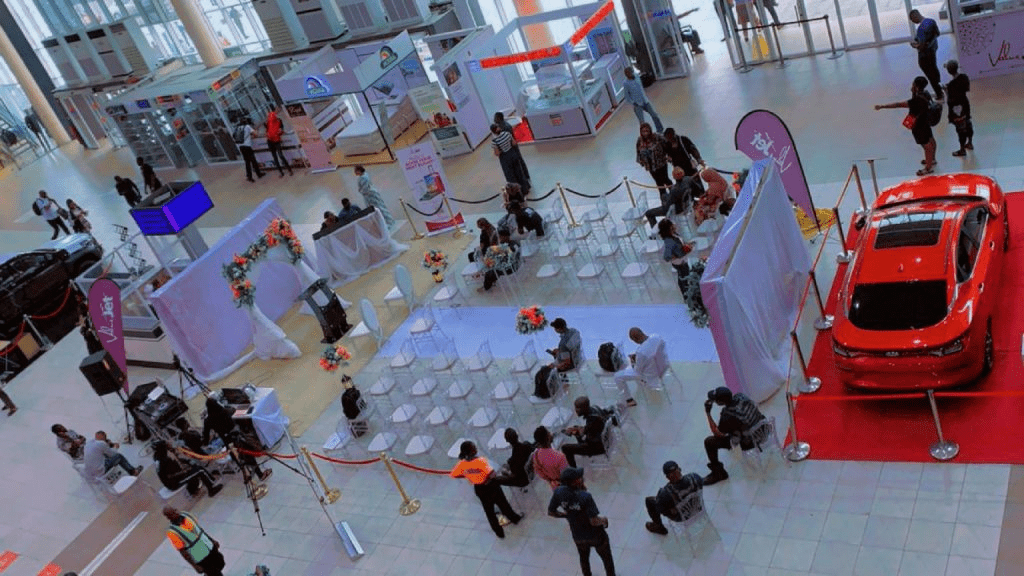
In other parts of the world, train weddings have happened. Back in 2024, Britons Leah Anderson and Vance Smith got married aboard a train travelling between London Paddington and Swansea, highlighting the significance of rail in their love story. They had met on a train 8 years prior, shared their first kiss on another, and Leah’s father had been a railway signalman for 51 years.
However, if foreign films are anything to go by, such news isn’t exactly shocking. Nigerian parastatals, on the other hand, are hardly where you’d expect the cultivation of creativity or whimsy, yet the NRC proved themselves to be different by anchoring the #ogeifunanya union. For them, this was a sort of rebranding exercise for Nigerian mobility, clearly reshaping public perception. Ultimately, Sharon and Shawn’s iconic train wedding offered a glimpse at what’s possible when public infrastructure meets imagination.


